Interview with Jeanne D'Aout: New book with Otto is out
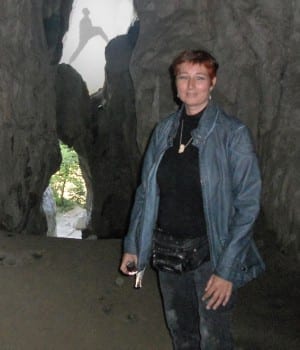
Q: It’s nice to meet you again. Congratulations on your new book!
The new book, The Eye of Ra, also features Otto Rahn. I know every new book is always a breakthrough for a real writer. What was your main finding?
A: My most important discovery while writing my second book, ‘The Eye of Ra’, is the incredible experience of having lots of questions and finding out as soon as I started writing, that I had the answers already within me. Writing activates something in the brain that helps you understand certain things that are normally difficult to understand. Writing ‘The Eye of Ra’ took me back to ancient Egypt, where I set myself the quest of discovering the identity of the Biblical divination stones known as the Urim and Thummim, and to understand the psyche behind the heretical Pharaoh Akhenaten.
It also made me explore human nature, as some of the characters are facing great challenges. For me, writing the book was an alchemical process which helped me through my own personal challenges.
Q: What did you find in a human nature during your exploration? What helps us to walk through the challenges of life? Where and why we go?
A: As long as we can remember, religion and science (the knowledge of physics and metaphysics) were used as a tool to control other people. Therefore, most people on this planet have to deal with the government; the ruling classes (usually both church and state) and their urge to remain in power. Religion was used (or better: abused) to control the masses and they often used force and violence to scare people into obedience. You can see this everywhere in history and even in the present. This happens not only in the big world, but also in smaller environments. Think about bullying at school or at work. We all have to ‘fit in’ or prepare to be scorned. Every individual responds differently to this system. In our lifetime we discover how restricted our freedom really is, especially when we become ill or too old to work, or the moment we become addicted to material things or to ego itself, or, when we experience - in some form - aggression from others in our environment because we are different. However, we need confront ourselves first and look within our hearts to find the tools to change how we respond. Like nature does in its evolution, we too need to adapt from within to be able to break free, thrive and be happy (inner alchemy based on universal love). In ‘The Eye of Ra’ I let several characters, including Otto Rahn, go through their own experiences to explore how each of them would respond to these challenges.”
Q: Has something changed since the times of Akhenaten in human nature?
A: In the 14th century B.C.E., the Egyptian Pharaoh Akhenaten tried to introduce monotheism to a people who had grown accustomed to a very profitable multiple deity worship for thousands of years. By doing this, he shook up the entire country and placed it on the brink of bankruptcy. In the 4th century C.E., the Byzantine Emperor Constantine the Great would do the same thing with the old Roman Empire, replacing the multiple deity worship of the Romans with Christianity, which was very popular in Europe and the Near East at the time and seemingly unstoppable. Then, in the early 7th century, the Prophet Mohammad introduced Islam in Arabia, which was originally polytheistic. For some reason, the acceptation and worshipping of the one God of all Gods and introducing this concept to the masses seemed to have been of great importance to these leaders, whether it was economically profitable or not. Perhaps they felt that it is important to unite the world by a common belief system, worshipping the one true God while forgetting that all is one anyway, no matter how we call it, how we antropomorphize it or by which rituals we honour it. Otto Rahn once said, and I quote: ‘The anxiety of mankind consists in reaching the kingdom of the heavens…’ I think our urge to work with the God of our hearts and to try to convert others to do the same, simply because it works for us, will always be an integral part of human nature.”
Q: In 2012 you featured in the world famous documentary “Himmler and the Holy Grail”. How did the idea of documentary shooting reveal itself?
A: Peter and I had just come back from a tour and were driving through the Sabarthes - one of Otto’s favorite places here in Occitania - when my phone rang. It was a British production company who was wondering if I’d be interested in participating in an interview for a documentary on Otto Rahn. They had discovered that I was the author of “White Lie”, my first book, in which Otto plays a very important part. They were also wondering if I’d able to help them track down Richard Stanley, who had made a documentary called “The Secret Glory” on Otto’s life many years ago. Of course, I had already met Richard on several occasions and immediately contacted him to ask if he’d be interested to do the interviews for this doc. We were both available and soon after, a date was set and we embarked on a wonderful adventure, shooting on original sites in the Sabarthes. The result: Himmler and the Holy Grail.
Q: If you met Otto at March of 1939 what would you tell him?
A: Probably not a word. I would listen. It’s probably all he needed; someone to talk to, someone to share his situation, his fears, his feelings with. But in case I did choose to say something, I’d have spoken words of comfort to him.
Q: We know Otto had some connections with the Polaires society in France. Richard Stanley describes them as an 'esoteric circle whose members believed they were acting under the direct instruction of the ‘ascended masters’, the ‘secret rulers of the world’.
Did you try to find them when you were working on your books?
A: Actually, I didn’t even know that they still exist, albeit under another name: “White Eagle Lodge”. They now have their headquarters in London, England and the order is led by a wonderful person named Colum Hayward, a grandson of Grace Cooke, who probably even worked with Otto in Lordat and/or Montségur during their archaeological excavations in the 1930s. But until May 2012, I had no idea of this. However, the Universe works in mysterious ways. In 2012, my husband Peter and I were already friends with the present owners of Antonin Gadal’s old house in Ussat-les-Bains/Ornolac, and on a beautiful, sunny day, we were asked over for coffee and lunch and to catch up. We were just having coffee at Gadal’s house when a group of people approached. It was Colum Hayward with several members of White Eagle Lodge! Of course, when Mr. Hayward found out I had actually written a book featuring Otto Rahn, we were immediately engaged in a wonderful conversation about the mysterious relic hunter and we became instant friends. We even ended up exploring the famous caves (the Bethlehem Cave, the Cathedral, the Hermit’s Cave and several other caves in de mountains above the village), literally in the footsteps of Otto Rahn, already that very same day! It was a real adventure.
Unknown to many, the teachings of White Eagle Lodge are, however, quite similar to the teachings of the Rosicrucians, a mystical brotherhood which we know Otto was also interested in. After all, Antonin Gadal was both a neo-Cathar and a Rosicrucian. However, their teachings have nothing to do with the occult, as some people would like to believe. On the contrary. To those who are interested: do not hesitate to visit the website of White Eagle Lodge; it might give you a better understanding of their teachings, the Polaires and the Rosicrucian mystical teachings that Rahn studied with Gadal.
Website: www.whiteagle.org<
Q: What kind of people come to you on your tours for visiting ancient sites of Occitania? What are they searching for and what could they find?
A: Most visitors who come to Occitania are people who are usually on a spiritual path, interested in the unique and almost forgotten culture and history of Occitania. Some are searching for the teachings and historical enigmas around the Biblical figures of Jesus and Mary Magdalene, the mystery around the hilltop village of Rennes-le-Château, or traces of the Knights Templar, or the tragic history of the Cathars (gnostic Christians who were massacred by the Roman Catholic Church in the 13th and 14th century). Others are particularly interested in the so called ‘sacred’ geometry in the landscape, because there are odd lines, geometrical shapes, and even traces of an ancient zodiac found on maps and on sites. This doesn’t surprise, because prehistoric people have already been living in Occitania for many thousands of years (ca. 450.000 to ca. 1000 BCE) and these people were very much into adapting landscapes in such a manner that they could understand the movements of the stars and planets, the phases of the moon, and the earth’s orbit with its four seasons. Understanding the natural laws was vital for their survival.
Occitania is, however, also a land where - in times of war or unrest - underground tunnels, ancient crypts, old Roman and medieval mines and hidden caves were used to store all sorts of treasure - the theories are endless - or ‘forbidden’ gnostic scrolls that contained ‘heresy’ in the eyes of the Roman Catholic Church, scrolls much like the ones found at Nag Hammadi in Egypt and Qumran in Israel. No doubt, even various important relics were brought to France by Jewish refugees, Essenes & early gnostic Christians, who fled the harsh Roman rule in the Roman province of Judea in the 1st century CE. Occitania is dotted with the remains of ancient buildings and markers; silent witnesses of forgotten pasts, legends, secrets, tales and troubadour songs about Parsifal and the Holy Grail. Obviously, this region attracts everyone who loves a good mystery, and Rahn certainly was a passionate researcher of these enigmas. Little did he know that he would even become something of an enigma himself. In my first book, ‘White Lie, the Quest for the Forbidden Relic’, Otto plays an important part in a fictional story based on true historical facts that have played out in this very region. Occitania is and always will be a magnet to seekers of all sorts, hoping to find the lost treasures of Occitania, whatever these may be.”
Q: What about your plans? What is the next?
A: “This Summer and Autumn I will mainly do a few guided tours here in Occitania and I’ll be researching some interesting material for my new book, which will be the 3rd and last book of my Time Travel Trilogy. I am hoping to publish it in the Fall of 2017, but not being under any contract also means that I have the possibility to write the book without feeling any pressure, so I can take all the time I need. In the meantime, I am making myself available for documentary work, interviews and articles. I am also still hoping to find a film production company to create movies or TV series based on my books. The world is my oyster; I am not in any hurry. Everything has its Divine Timing and I am grateful for every opportunity I get to promote my work. I do not write ordinary books; they are adventure stories with hidden messages, which can only be discovered by the reader who is ready to recognize what I am trying to convey. It is, I believe, material Otto was very much interested in, too, so he will be in my 3rd book as the main character once more. The subject? I will give you a hint, using Otto’s own words: ‘The anxiety of mankind consists in reaching the kingdom of the heavens. My ancient forbears were heathens, and my ancestors were heretics. For their exoneration I collected the pieces that Rome left over.’”
May, 2016
P.S. I have good news, as today, THE EYE OF RA was released on Kindle eBook! So now, both books are available as a paperback copy, and as eBooks. http://www.jeannedaout.com/eyeofra.html<
07/06/2016
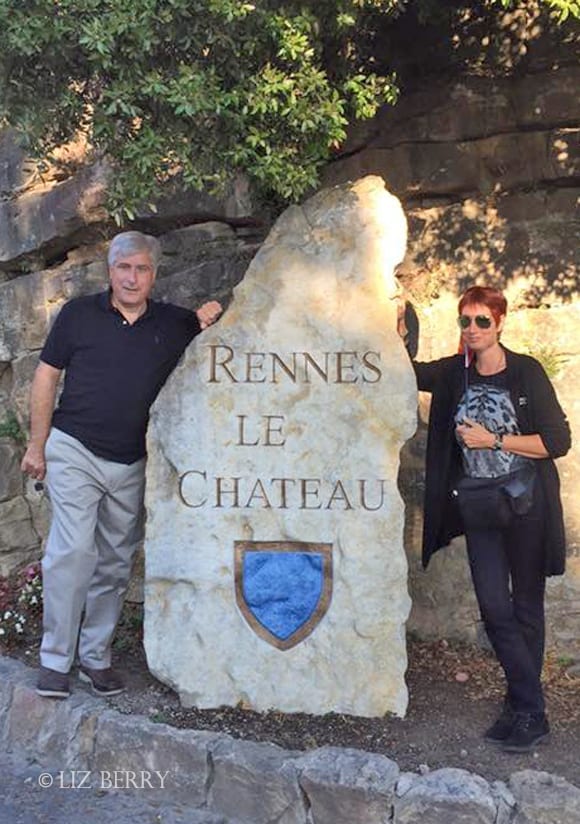
Jeanne with New York Times bestselling author Steve Berry in Rennes-le-Chateau, 2016.
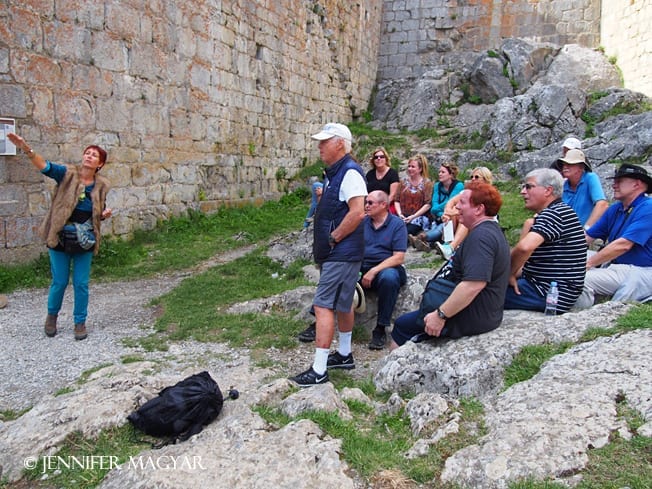
Jeanne guiding in Montsegur with Steve Berry
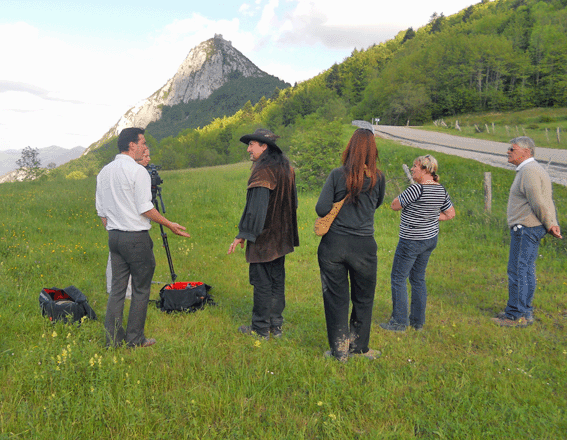
Filming Montsegur
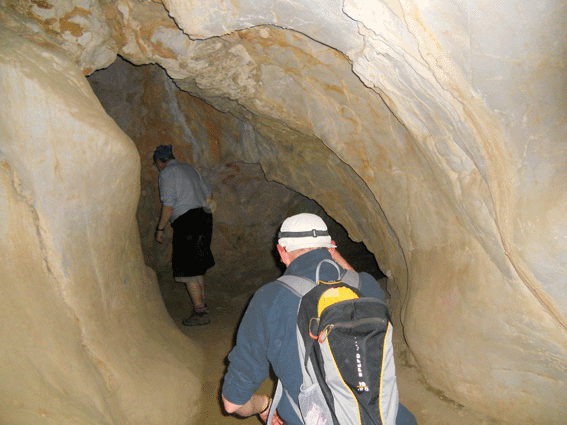
Hermets Cave. Inside the Mountain
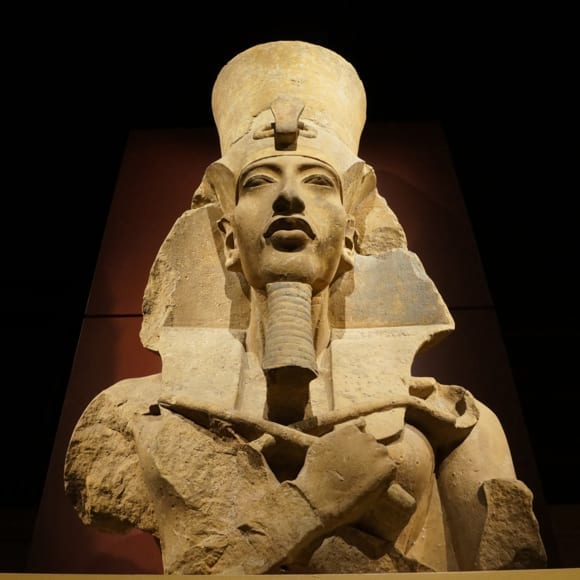
Akhenaten. The Pharaoh of Egypt
- Inicie sesión o regístrese para enviar comentarios
Similar By Terms
|
(Русский)
|
(English)
|
(English)
|
(English)
|
|
(Deutsch)
|
(Español)
|
(English)
|
(English)
|








Comentarios recientes
hace 13 años 50 semanas
hace 13 años 50 semanas
hace 13 años 50 semanas
hace 13 años 51 semanas
hace 14 años 2 semanas
hace 14 años 7 semanas